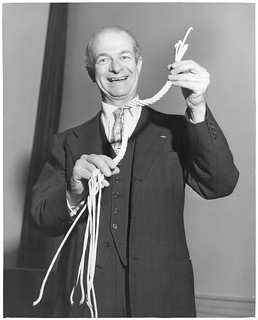As we near summer’s end, many colleges and universities are looking for ways to support new faculty members arriving on campus. Administrators and senior professors often realize that the old system of de facto mentoring — with older faculty casually showing their new colleagues the ropes — has its limitations.

Institutions usually start upgrading their faculty mentoring in two basic ways. First they formally assign a mentor to each new faculty member. Second, they set up a series of workshops on how to be successful on the job.
The system of assigning a mentor to each new hire is an important baseline. However, it has some of the same pitfalls of the de-facto system in that not all senior professors are good mentors, and many times they do not relate well to the challenges faced by new faculty. And it’s unrealistic to expect one faculty member to meet all of the varied needs of a junior colleague. Likewise, workshops on “How to Write Your First Book” or “Getting Your First Grant” can be indispensable, but many new faculty need support beyond a few one-hour, one-shot seminars.
Those two approaches are certainly better than nothing. However, there are many other, more creative ways of mentoring new (and older) faculty. I offer the following list of 10, none of which cost more than a few thousand dollars, and some of which are practically free.
Organize family meet-and-greets in a campus gym.
New faculty with small children often find it difficult to attend an evening event, and are also interested in meeting other professors with kids. Organizing a family-friendly meet-and-greet in a fun place like a gym can be a great solution. Make sure there are organized activities for the kids or even a few giant yoga balls to toss around.
Offer small grants to junior faculty to travel for off-campus mentoring.
In addition to on-campus mentors, newcomers to the profession often need to build their network by finding mentors and advocates outside of their home institutions. Departments can help by setting aside money to help faculty members defray such travel costs.
Give small grants to new faculty to invite senior scholars to campus.
The idea here is to ask visiting scholars to critique the work of new junior faculty. This often takes the form of a “book workshop” where a new faculty member invites three other academics to campus to discuss and critique the junior scholar’s book manuscript. I know faculty members who have done that, and found it a very valuable experience.
Sponsor campus discussions of books on writing and good work habits.
There are tons of amazing productivity books out there that new faculty should read, such as How to Write a Lot: A Practical Guide to Productive Academic Writing. Even better than just reading a book is to get together with colleagues to discuss the book. That not only ensures that the book doesn’t just sit on the shelf; it also gives people the opportunity to share pointers, work through challenges, and hear about other helpful books.
Reward stellar on-campus mentors.
As I mentioned, not all faculty members are capable mentors. By establishing a mentoring award, the university can both honor people who are good at mentoring and establish role models for other faculty who would like to be better mentors.
Create training workshops for faculty mentors.
Many faculty members have no idea how to be effective mentors, but they can learn. In training workshops, award-winning mentors can provide tips on their most effective mentoring practices.
Hold monthly problem-solving lunches.
A free lunch is an inexpensive, easy, and much-appreciated way to get academics together. A monthly lunch for new faculty gives them an opportunity to both make friends and talk through common challenges.
Organize writing feedback groups.
All academics need feedback on their writing. It can be challenging, however, to find people to critique your work. One way around that problem is to organize small writing groups with four members who meet four times during the semester or quarter. At each meeting, one person gets feedback on their work from the rest of the group, so hat by the end of the term each participant has gotten their work critiqued.
Organize writing accountability groups.
Writing feedback groups can be great when we need critiques, but sometimes we just need encouragement and support. Institutions can help faculty members by organizing four-member writing accountability groups that meet once a week for an hour. That helps motivate the group members to keep writing and also gives them a place to talk about productivity challenges and successes.
Provide a faculty-only writing space on campus.
Many academics have trouble writing in their offices because of constant interruptions. One solution is to create a quiet space on campus where faculty members can go to write. If the space has coffee, even better!
At many institutions, a cultural shift in mentoring practices is needed. A place that has long had a de facto or nonexistent mentoring program can be transformed into one where a positive mentoring culture exists. Mentoring programs will not be successful if they are “one size fits all.” However, by offering a variety of options, colleges and universities can support their faculty members and build community while they are at it.
No comments:
Post a Comment